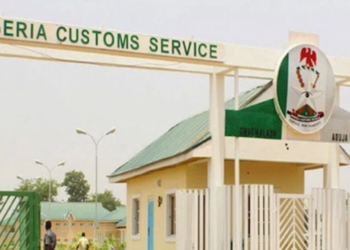There is a new interesting paper on informal trade in Benin Republic, our favorite trading partner to the west. Favorite because they have long offered an easy way to bypass our trade policy which can sometimes be senseless.
The summary of the paper is that there is a lot informal trade. The paper finds that a large part of informal trade with Benin is in petroleum products, which accounts for 90% of all imports to Benin from Nigeria. If you exclude petroleum products then the ratio of formal to informal trade is about 1 for imports to Benin from Nigeria. The ratio of informal to formal exports from Benin to Nigeria is an amazing 5 to 1, at least as at when the survey was done. The bottom line is that the vast majority of trade is informal and unrecorded.
Of course, if you know anything about trade between Nigeria and Benin then none of this comes as a surprise. This is not news. What is surprising to me is just how vast the trading operation is.

There are informal border crossings all along the borders with Nigeria, Togo, Niger, and Burkina Faso. What this means is enforcement of trade policy of any kind will be extremely difficult. We tend to focus on the Seme border in Nigeria but that strategy is probably pointless. As the authors find, a ten percent increase in tariffs increases the probability that the product will be traded informally by 0.12. Traders simply go informal when faced with higher formalization costs.
What all this means is trade policy coordination is necessary. We cannot ban things from Benin because such a ban will be almost impossible to enforce, and raising tariffs might be similarly pointless. Also, making formal trade easy needs to be front and center of any policy. If you can’t force traders to formalize then you have to make formalization as easy as possible.
The paper is “Regional Integration and Informal Trade in Africa: Evidence from Benin’s Borders” by Cristina Mitaritonna, Joachim Jarreau, and Sami Bensassi.





















